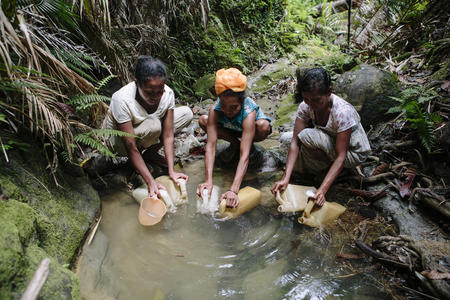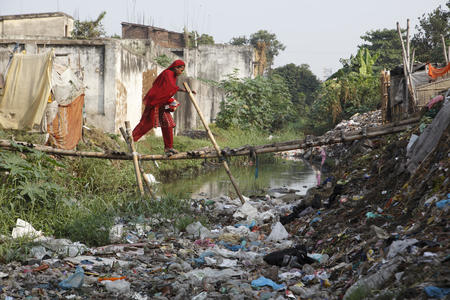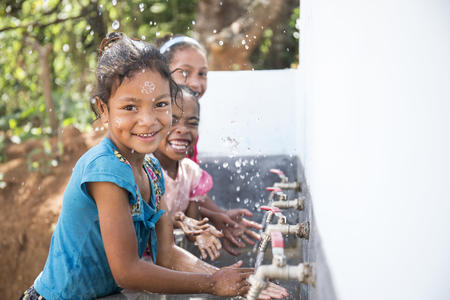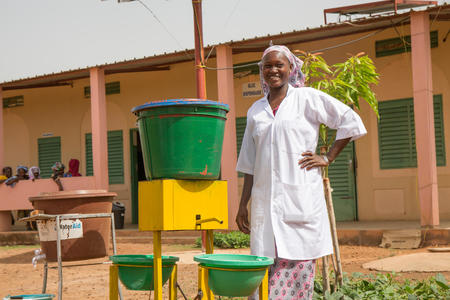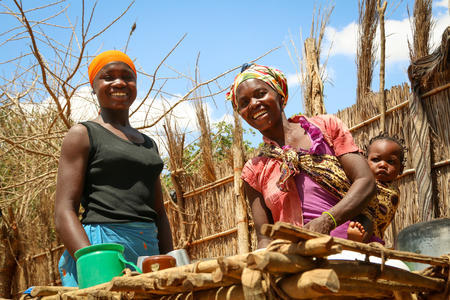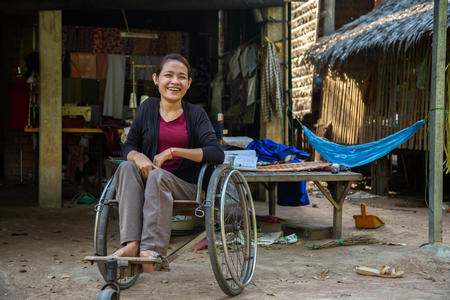Water
Can you imagine life without clean water to drink? For millions of people it's a daily reality.
Every person needs a sustainable supply of clean water: for drinking, washing, cooking and cleaning. It’s a basic human right.
However, to date governments, institutions, service providers and donors around the world haven’t done enough to ensure clean water reaches the poorest and most marginalised people.
In many countries, taps, wells and pipes delivering clean water simply don’t exist. Even where they do, water supply services are often not affordable or accessible, or aren’t designed to last.
Sanitation
What would life be like without a toilet? Billions of people know only too well.
A decent toilet is something everyone should take for granted – at home, school, work and in public places. It’s a basic human right that protects people from dangerous diseases and provides dignity.
Governments have neglected sanitation for too long, resulting in a severe lack of finance, skills, resources and systems to ensure everyone has access to a decent toilet.
Hygiene
Many people are unaware that good hygiene is a lifesaver.
Something as simple as handwashing with soap reduces cases of diarrhoea. Good hygiene maximises the benefits of clean water and decent toilets, keeping people healthy for generations to come.
Yet, hygiene promotion schemes, where they exist, often fail to change entrenched practices such as going to the toilet in open areas around the community. They also often don’t address cultural taboos such as menstrual health and hygiene training for young women. And even when people have the knowledge to make positive changes, they often lack soap or access to washing facilities.
The issues
Health
When people have access to clean water, a decent toilet and can practice good hygiene they’re less likely to get ill.
We’re working hard to ensure that the health sector is investing more money in clean water, decent toilets and good hygiene, and including these essential services in their plans.
Read more about the health benefits of our work.
Gender equality
Girls often begin collecting water as children and continue to collect and carry water throughout their lives. Women’s needs for safety and privacy are often ignored in the design of services, making it difficult for them to live a life of dignity, to address their needs, and placing them at risk of assault and harassment.
We’re working to achieve gender equality, ensuring women and girls are involved in the planning, roll-out and ongoing management of services.
Read more about how we’re addressing the challenges women and girls face every day.
Social exclusion
Water, hygiene and sanitation services often don't serve the needs of the least powerful. People with a disability, and older people, are excluded from water points and toilets if they can't easily access them.
We seek to tackle exclusion and marginalisation wherever it occurs.
Read more about how our work can improve social inclusion.
Building services that last
Selecting the right technology is critical. But there also needs to be a strong system in place to turn policies into action, attract finance, and maintain services. Otherwise there’s a risk that the benefits of clean water and decent toilets stop flowing.
We’re focused on ensuring that water and sanitation services continue to work over time.
